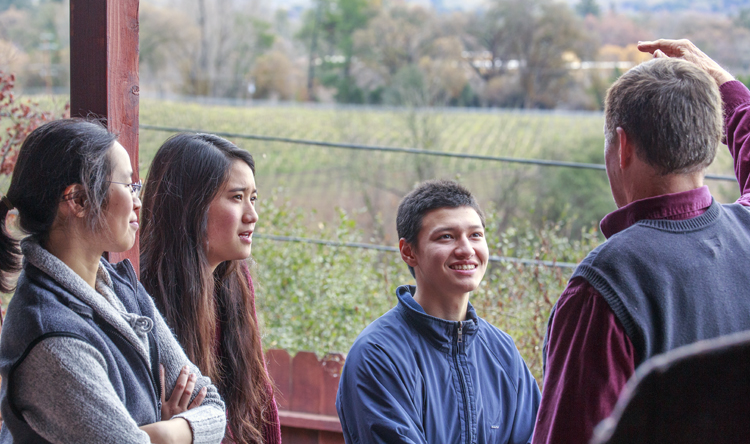Statement on Liberal Education
Pursuing the highest goals of human existence
Dharma Realm Buddhist University, founded in 1976, is a small private school dedicated to liberal education in the broad Buddhist tradition—a tradition characterized by knowledge in the arts and sciences, self-cultivation, and the pursuit of wisdom. DRBU aims at educating the whole person and thus strives to nurture individuals who see learning as a lifelong endeavor in the pursuit of knowledge, self-understanding, and the creative and beneficial application of that learning to every sphere of life.
When universities were first created, they were meant to embrace and portray an endless and vast vision, an expanse that encompasses humanity and stretches throughout the universe. That is why a “university” is so named. The Buddhist phrasing for this notion of the universe is Dharma Realm, while the word buddha simply means “awakening.” Hence, the name Dharma Realm Buddhist University expresses an Eastern rendering of the same idea: the university as a place devoted to understanding ourselves, the nature of the wider universe and its workings, and our place in it.
DRBU is guided and informed by enduring hallmarks of a liberal arts education from both East and West, which holds self-knowledge rooted in virtue as its basis, insight and goodness as its outcomes, and benefiting others as its application. The university’s pedagogical aim is thus twofold: to convey knowledge and to activate an intrinsic wisdom possessed by all individuals. Such learning goes to the heart of a liberal education. It makes one free in the deepest sense, as it is a liberation born of disciplined self-mastery rather than from desires unrestrained, and it opens up the opportunity to pursue the highest goals of human existence.
At its best, liberal education properly conducted does not indoctrinate, but rather disentangles. It is carried out not so much by filling students’ minds with a prescribed body of knowledge and beliefs as by providing them with the tools to gain self-knowledge. This in turn is based on the belief that students possess a latent capacity for understanding and that education serves as a catalyst that helps precipitate and release knowledge into active awareness. Developing this inherent capacity requires an orientation toward learning that is dialogical, interactive, probing, and deeply self-reflective.
The foundational culture of the liberal arts instills a breadth of learning that fosters sharp analysis, sound judgment, and informed choices—essential qualities for becoming active, reflective, and responsible citizens of the world. It expands the mind, stirs the heart, and inspires the soul. While grounded in classical ideas, a liberal education fosters students who are at the same time acutely alive to and engaged with modern life. They bring a nimble responsiveness to shifting possibilities in an ever-changing and increasingly complex world. They are confident, but not rigid, and have the flexibility to constantly assess new and evolving conditions, both inside and outside. Accordingly, they can reconsider, adjust, alter, or even abandon their course or stance.
Liberally educated persons are able to appreciate the unifying and complementary nature of the sciences, arts, and humanities across disciplines and cultures. They can effectively integrate the intellectual, ethical, personal, and professional dimensions of their lives into a meaningful whole. This fundamental experience opens them to a life of beauty, curiosity, accomplishment, and continuing wonder. While the field of knowledge over time has grown, the need for people to ground themselves in the abiding sources of human values and to keep an open mind at the same time remains unchanged—and is perhaps more urgent than ever. Those capable of mastering these two seemingly opposite approaches are the rare individuals who bravely engage in the world and benefit humanity no matter what profession they choose to practice. It is these individuals whom DRBU seeks to nurture.
